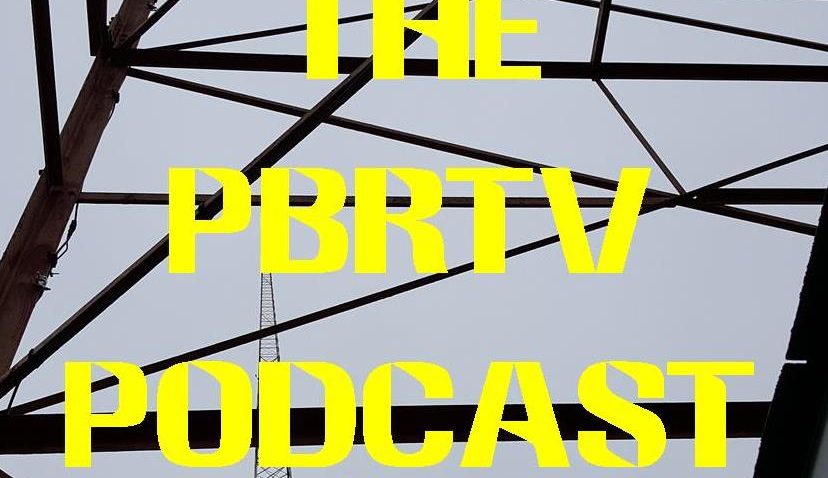i(doesn’t)HeartRadio
January 15, 2020Tuesday, January 14, 2020 has been dubbed “Black Tuesday” as the largest corporate radio owner in the United States, iHeartRadio restructures (again) resulting in “employee dislocation”. To me that sounds like a mob boss sent his agents to the stations to “take care of a few knees”… or fingers… or well you get the picture. Meanwhile, the “dislocation” means you have been asked to leave the station… with your personal belongings.
Oddly enough, before this started, iHeart took all of the “on air” staff pages off of the station websites. In the best case scenario, is it easier to take ’em all down and remove those who have been asked to leave behind closed doors and put the survivors back up?
iHeart is restructuring so that the large market stations are operated under one group called the “Region Division”. The medium groups will operate under the “Metro Division” which will serve areas that encompass several communities. And then the “Community Division” will serve the small markets.
Meanwhile, the talent remaining within the company will work at what will be known as a “Center of Excellence”. There they will be asked to provide content for many stations. That is just the tip of the iceberg, radioinsight.com has the details.
Meanwhile we have had reports of the Erie Market being affected as Bill Page departs middays at WXBB; Chuck Rambaldo is out as PD of WTWF where he was on afternoon drive, WXBB, WRTS and WRKT. Sammy Stone leaves the morning shift and Carrie Leigh leaves middays at WTWF. Daniel “Baxter” Irving leaves nights as WRKT, and Alex Womer leaves his production room and afternoon hosting at WFNN. (RadioInsight).
In Pittsburgh, we have heard from various sources that Bob McLaughlin, Bob Benedict (WWSW), DJ Scottro (WKST), and producer Greg Kuntz have been let go. We have no formal confirmation of these at this time, but have seen some social media posts indicating a few of these are fact. That said, we prefer not to speculate on these things – particularly when they affect people’s livelihoods. But it seems no market cluster is safe from this round of cuts.
Stay tuned…


Add another name to the Erie cluster exiting. Kyle Hendricks who was a midday and weekend personality at Star 104, WRTS.
It seems to me that in 2020, simply playing a single, national program for each format might be a more profitable approach. Terrestrial radio might end up being like network television, with every local “affiliate” carrying the exact same program feed, with gaps in place for local spots. They might lose a little ad revenue, but they’d save much, much more on production costs. I think the net might be higher profits. Maybe.
Over the past 10 years people -consultants, air talent, programmers have put in the forefront what’s wrong with “radio”. If it’s true that iHeart will focus in on podcasting and minimize attention on its local markets, who will win? I haven’t seen the report that says podcasting revenue (or digital or Event marketing) has outpaced spot revenue. The importance of the radio personality is being minimized by this move – to say the least. We’ll no doubt hear more “premium choice” voices -and fewer audience interaction. Back in the day AM radio was limited in fidelity as pundits said music programming would move to FM. It was a situation where the tail wagged the dog. If iHeart believes that taking more “fun” out of local radio will drive people to podcasts, then those of us who have spent a few decades in the business are more befuddled than ever. I realize the “K-Love” (and “Air 1”) model has worked very well for them. It scares me to think that the “audio” industry will be run out of one studio. EMF isn’t selling locally -so that part of the equation is out of the picture. iHeart isn’t asking for donations (yet). It’s pretty scary to say the least. Congrats to those who’ve been approached by other media companies for employment. In some markets the choices are limited and dwindling daily.
In my admittedly very narrow experience, I cannot remember the last time I heard anyone I know ever comment on or mention any disc jockey or other on-air element of radio that drove the listener to any particular station. The only aspect of what any terrestrial station broadcasts is the same thing that drives listeners to any particular channel on satellite or streaming music services. That’s THE MUSIC. I remember not too long ago that people would mention DJs by name, especially on morning shows. That used to be, but not any more. Maybe it’s because the only flavor of DJ on the air nowadays is vanilla. Maybe it’s because stations are so narrow and focused in their programming that the aspects of terrestrial broadcasting that accompanied the music no longer matter. Maybe it’s because there are so many other alternatives for hearing the music you want to hear. In my narrow little world, I don’t know anyone who even has a radio set up in their home they can listen to. If they want to hear music, they ask Alexa to play something for them. I have to assume that the suits who measure such things do so accurately. However, there is an important principle I learned in different industries. Being wrong about what the public really wants for many, many years doesn’t make an expert right.
It is easy to imagine this “Center of Excellence” will be staffed by actors who can assume any roll, and name, that I-Heart dictates. So one person could be “Dusty Rhodes” on a country station, “Tall John Rocker” on a classic rock station, and if he can get his voice high enough perhaps “Heavenly Hannah” on an easy listening station. With voice tracking, where a four hour airshift can be compiled complete with banter by the talent in under an hour, it’s the way things are and will be on steroids in this “Center of Excellence.” The talent will be expected to know enough about the city he is pretending to be in to be credible. It happens already on a smaller scale, and much of the listening public doesn’t have a clue.
This is all well and good under the wide umbrella of what is loosely thought of as entertainment. But it should really bother all of us when this virus spreads to all-news and talk formats.
All the more reason why the truly local, struggling stations, where they can still be found, deserve local listeners.